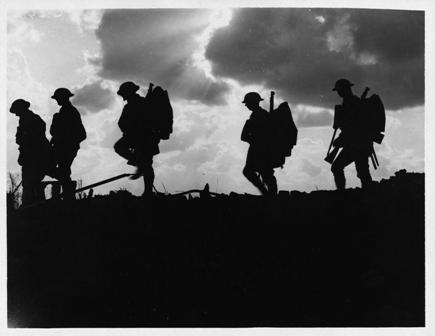Social and emotional changes that can occur with brain injury

Celebration after brain injury Image by
Celebrations after brain injury can be tricky. This article is updated and reposted each year before the end of year. Timed for when Christmas, Hannukah, New Year and other celebrations abound. It acknowledges that managing celebrations after brain injury can be difficult. Filled with expectation and anticipation - it does not always deliver on the promise. It would be great to hear from you about your own experiences and strategies. Managing Celebrations after Brain Injury 2015 I do not want to be accused of being the Grinch who stole Christmas, so please let me start by wishing those of you celebrating Christmas a very special time. And for everyone I hope it is a wonderful new year. Why am I in danger of being called the Grinch? Well, in the middle of a major holiday celebration, I am about to suggest that birthdays, anniversaries, Christmas, and celebrations after brain injury do not always go so well together. Expectations can be high and…
Emotions. Books are devoted to them. Movies rely on them. Life can depend on them. What can happen to our emotions after brain injury? Thinking about emotions after brain injury was brought to my mind after speaking with a woman who has a public speaking role. We discussed her continuing this role despite difficulty controlling her crying after brain injury. Before talking about emotions after brain injury. A moment to think about just how important our emotions are? I heard recently that an ‘emoji’ has just made it into the Oxford Dictionary as word of the year. Imagine - little digital images of faces now recognised by the Oxford Dictionary. My grandmother would be shaking her head in disbelief. Yet it says - emotions are important. The emoji adds emotion to our message written message. Yet rarely do we think about the complex system needed to ensure we have the right emotion, at the right time, and just the right amount…

End of Life and a good death. Image by Chris Scott
Can we help to make our end of life a good death for ourselves and for others? What tips and strategies might contribute to having our needs and wishes met? To make our end of life a good death. The first article in this series To Talk or Not To Talk About: End of Life A Good Death describes a number of issues that lead me to this discussion about end of life a good death. The second article A Good Death: End of Life and Dying contains thoughts about why it is important to consider and discuss our needs beforehand. I remember many years ago in a local hospital a young husband and wife, both of whom were dying from terminal illnesses. Both had been, and continued to be rebellious and forthright. Many hospital staff were unable to cope. The couple challenged others owing to their black humour - jokes about who would die first; their insistence on wearing brief black clothing as they…

End of Life: Fisheye view by Chris Scott
The time leading up to the end of life - after brain injury - or at any time, is a topic one should maybe leave alone. I want to talk about it. I believe we should all talk about it. I know it is thought to be a private subject, yet what happens at the end of our life while very personal, is also universal. We can easily forget end of life can happen at any age, not just old age. And one day it has to happen to all of us. So why not talk about it. I have always believed it needs to be talked about more openly and naturally. My own experience, early in 2014, when my father was dying made this even more important for me. So here, and for the next 2 weeks I am sharing my own thoughts, and resources I have discovered. My hope is to encourage more natural and fear-less discussion about end of life and…

Soldiers Marching Wikipedia
Today you are reading the remnants of what was to be a grand and enlightening piece about soldiers with brain injury. You might ask - Well what happened? [unordered_list style="green-dot"] You can see the beginning last week in a "Rant for Remembrance Day". It was much, much, bigger and more complex than I thought. Brain injury - Post traumatic stress disorder - shell shock - the circumstances of war. It was more emotional and difficult than I thought. The human stories, the lack of support for veterans - anger, sorrow, guilt, disbelief, horror and more. I kept doubting I could. The more I read, the more I wondered - What did I really know about soldiers with brain injury and their lives? [/unordered_list] You might then ask - Why did I keep going? [unordered_list style="green-dot"] I was learning so much and I wondered if sharing what I found might interest other people. My belief that this story needs to continue to…

Image from Pixabay
Image from Pixabay Today I am excited to introduce writer Ruth Burrill. Ruth has agreed to share her early experience of life after brain injury, rehabilitation and working with a support worker. Before I share Ruth’s story I will explain terms used for anyone outside of Victoria, Australia, who may be unfamiliar with descriptions used in the article: [unordered_list style="green-dot"] Attendant Care Worker – is a person paid to provide support most often on a 1:1 basis for another person. Transport Accident Commission (TAC) – “… a Victorian Government-owned organisation whose role is to promote road safety, improve the State's trauma system and support those who have been injured on our roads. “ Aborigine – used within this article refers to the indigenous people of Australia[/unordered_list] Ruth’s Story of Life After Brain Injury It was having an attendant carer program that enabled me to believe in myself again in the darkest stages of rehabilitation that made the difference. Attendant…
Often the focus for a person living with brain injury is on managing the physical and cognitive effects, not noticing changes in emotions after brain injury. It is easy to overlook the emotional ups and downs that come with such a major change to your life. Each week I look forward to wonderful emails from people all over the world in response to these articles. One email I received this week prompted me to think about the many conversations I have had over the years, with people up against their own reactions, responses and emotions after brain injury, along with those of their family and friends. The letter (yes it was an email, but I like to think of them as letters) was about the struggle to understand, and live with the life changes, that come with brain injury. The emotional roller coaster. I am not talking about the emotional changes that happen because of damage to the brain. I am talking…




